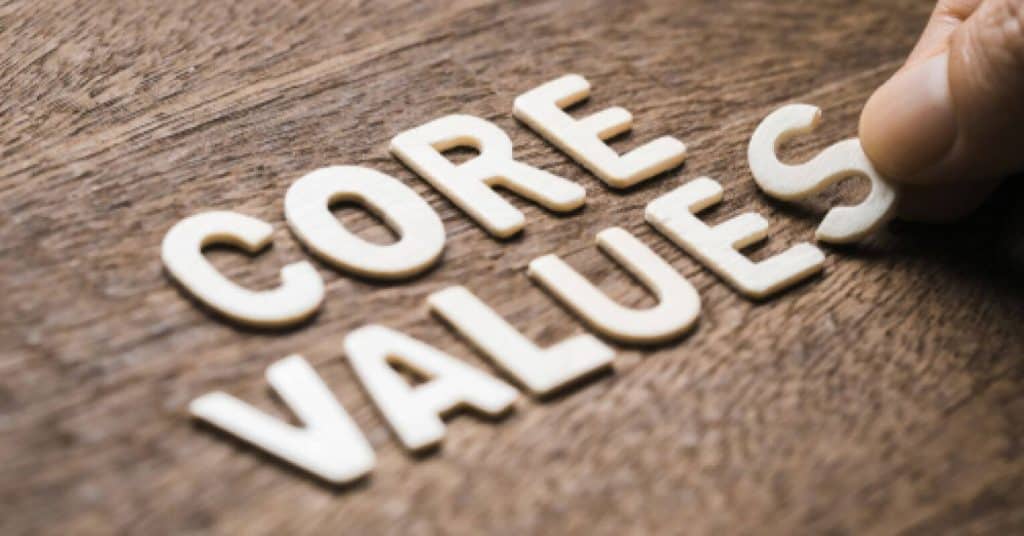
A new year often comes with a head and heart full of optimism BUT why do our resolutions often lead to us feeling like a failure? In 2022 statistics showed 72% of Australians set a goal with global research showing only 8% of people reported being successful with their New Year goals/resolutions.
We know a New Year is like putting a full stop on one year and much like a career change there is something refreshing about the New Year. Unfortunately just like a new career often we can find ourselves very quickly feeling empty inside once the excitement settles and we fall back into our old routine.
As we go into 2023 take the opportunity to reflect on the year that’s past, we encourage you to set goals for the upcoming year but to avoid disappointment we encourage you to better understand why new year’s resolutions fail and to do so we need to look at the psychology of of our habits and the foundation from which they are driven from, our values. Remember, habits only form when we repeat a behaviour until it becomes ingrained in our daily routines.
Instead of straight away focusing on what you want to add to your life its important for us to first break existing habits that are less than useful and often holding us back, and then create new ones. Remember, this is a difficult task not achieved overnight and requires consistency and dedication over time. Because of this, people often find themselves slipping back into old comfortable behaviours often due to competing values and priorities in life.

VALUES
Values are the compass that guides our actions and decisions in life, they help us determine what is important to us (and what’s not) and how we want our lives to lived. Identifying your values can be an enlightening process that helps you understand who you are and where you want to go. Here are some tips on how to identify your values:
List 3 things that bring happiness and joy to your life; these activities could provide insight into the type of lifestyle that aligns with your core values. This will help highlight what is important to you and why it matters.
List 3 areas of your life where you spend the most amount of time; We often spend time in the areas of life we value the most. Trying to understand why you spend time in that particular area can also help you further understand your motivation. For example many people spend 8-10 hours a day at a job they don’t particularly love but do it because providing for their family is a high value of theirs.
List 3 areas of your life you spend money willingly; Open your bank account now and go through and categorise your spending over the past 30 days. Where have you spent the most amount of money? looking at why you spend your money in that way can go a long way towards helping identify your values for example if you spend a large portion of your pay on drinks with the girls understanding the ‘why’ can unlock your possible highest value of ‘friendship’
Setting Goals That Won't Fail
So what if we were to set goals and new years resolutions based on values that we held close? Setting goals and daily habits based on our values can help us create better outcomes for ourselves and help us achieve our greatest desires.
As we have identified, values are the basis of how we live our lives, so using them as the foundation for setting personal goals makes it easier to stay on track and not be another person who has . Identifying what’s most important in life can provide insight into which areas require more focus. With this knowledge, an individual can then develop concrete targets that align with their desired values and lifestyle.
Moreover, when people set their objectives with respect to their own unique set of values, they are more likely to be motivated to work towards them and less likely to be derailed when situations present themselves during challenging times.
How To Track & Assess Progress
Tracking and assessing your goals and habits can be a challenge, it’s one thing to set a goal but in reality that is the easiest part of the whole process. Knowing when and how to measure progress will go a long way to helping you stay motivated and significantly increase your chance of success
There are several ways to track progress with goals and habits. First, decide what needs tracking: whether it’s daily tasks or weekly milestones. Logging progress this way helps create accountability and provides insight into which methods of working are most effective for you personally. Having specific metrics for measuring performance can also be helpful in monitoring your progress over time, for example we like to measure a client’s progress with lower body strength using the single leg sit to stand as it’s universally recognised as a great test for strength and longevity goals that resonate with many people.
So instead of setting New Year’s resolutions or fitness goals that leave you flat, dejected or worse avoiding setting goals at all, remember most people fail because they have unrealistic expectations, their goals are not congruent with their values, or they simply fail to plan. The key to success is to set realistic goals, plan and track progress, and be consistent. The most important thing though is to identify personal values and use them as your filter with everything you do. When people invest time into understanding their core values, they become equipped with the knowledge and motivation that goes a long way to bringing them fulfilment and joy in life.

